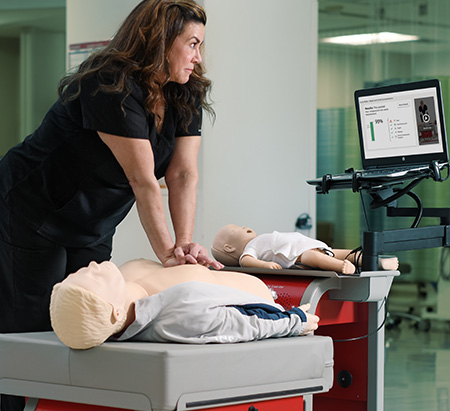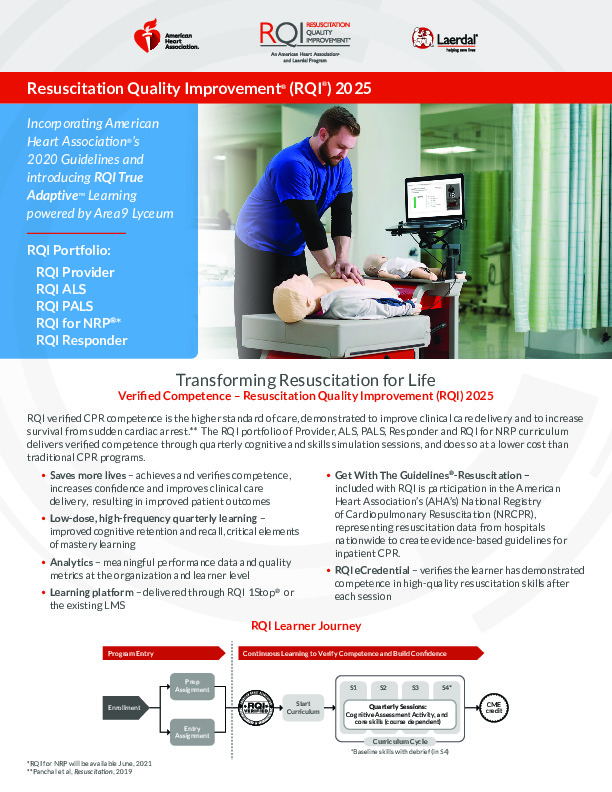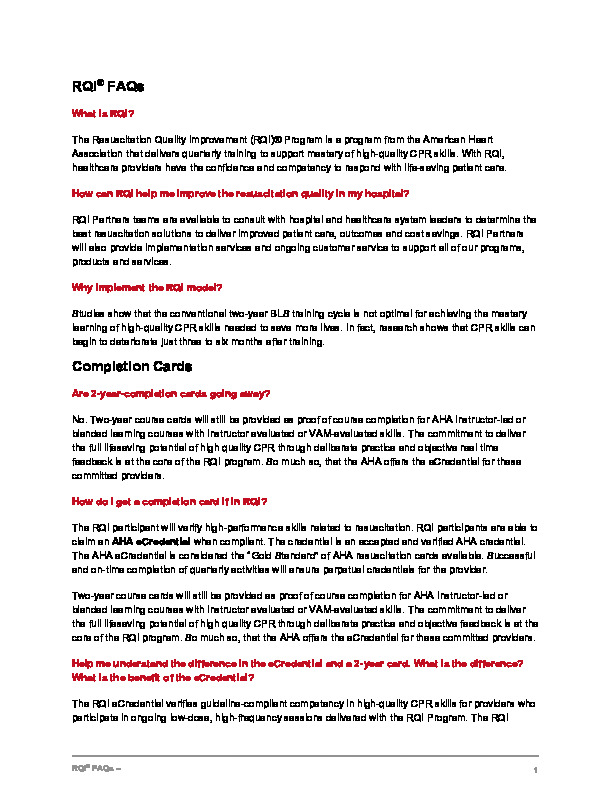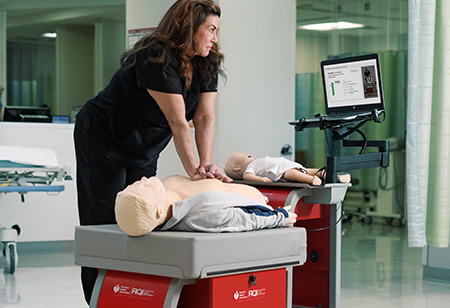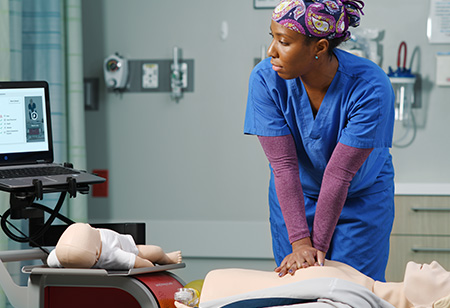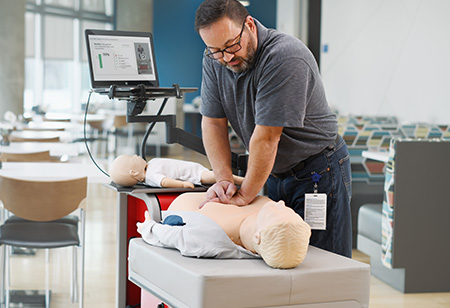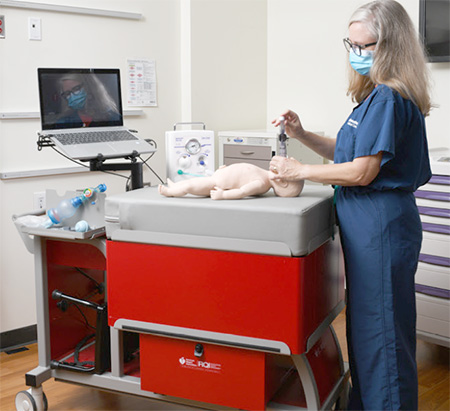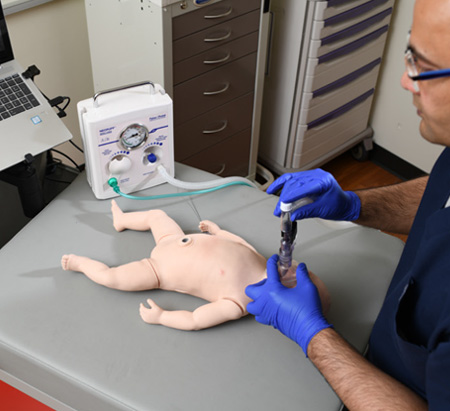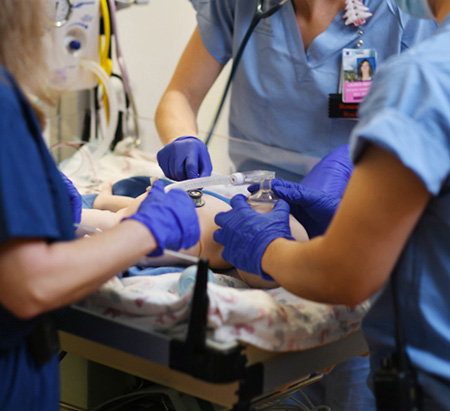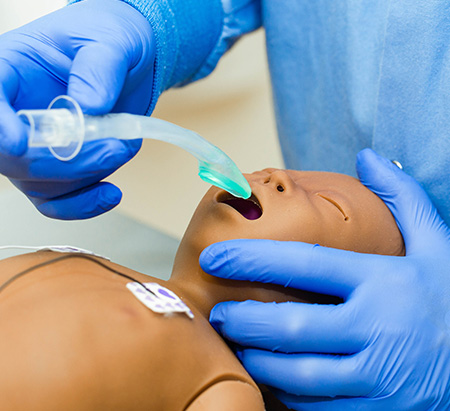Community Health
Network
Welcome Community Health Network
Thank you for making the commitment to save more lives from cardiac arrest by adopting the digital resuscitation portfolio of American Heart Association programs.
These innovative programs will change and improve how you complete CPR training.
A message from Brian Eigel, PhD
Chief Operating Officer of RQI Partners
What is RQI?
RQI stands for Resuscitation Quality Improvement.
The Resuscitation Quality Improvement program is a simulation-based, mastery learning program that uses low-dose, high-frequency quarterly learning and skill sessions to achieve and verify competence in lifesaving, high-quality CPR, and to enhance skills confidence and retention. In clinical studies, RQI has been proven to improve the delivery of clinical CPR quality in sudden cardiac arrest events.
THE DIGITAL PORTFOLIO:
The American Heart Association digital resuscitation portfolio is the preferred solution to uniquely and efficiently deliver safe and effective CPR quality improvement.
Our digital programs – deeply rooted in the latest science – lead healthcare organizations on an immediate journey to high-quality and verified CPR competence to maximize lifesaving outcomes.

THE TIME FOR DIGITAL TRANSFORMATION IS NOW
How does RQI work?
RQI learners are assigned a course or courses: RQI Healthcare Provider (includes BLS), RQI ALS, RQI PALS. Learners have a slightly longer introductory session to each course in the initial quarter. Each subsequent quarter features shorter low-dose, high-frequency training with eLearning and skills practice.
RQI eCredentials, representing the gold standard of verified competence in high-quality CPR, are issued with ongoing course completion. Learners can also download a free, traditional two-year American Heart Association eCard. CE/CME credits can be claimed at the completion of all four quarters (0.75 credits for RQI Provider; 1.75 credits for RQI ALS and RQI PALS, respectively).
Why is RQI better than other resuscitation education?
- RQI is delivered through individually accessed stations within your hospital, with robust cleaning guidelines to ensure safety for each user.
- RQI can be completed on your own schedule, rather than a specific class time.
- RQI provides continuity of training when unprecedented situations arise and other methods of training, such as the classroom, may compromise learner safety.
- RQI is integrated seamlessly with American Heart Association science.
- Low-dose, high-frequency training (quarterly training instead of once every two years) is proven to sustain knowledge and skills more effectively over time and at a higher level of quality. This leads to high-quality CPR performance and competence, in turn maximizing lifesaving outcomes from cardiac arrest.
There are many other reasons why RQI is the ideal program for resuscitation education. Please contact your RQI administrator for more information.
Digital Innovation: The new RQI for NRP®
The American Academy of Pediatrics Neonatal Resuscitation Program will now be offered within the Resuscitation Quality Improvement® principles of mastery learning, including quarterly, self-directed learning, providing an RQI for NRP e-credential that verifies competence in neonatal resuscitation.
Developed with leading experts in neonatal resuscitation science and education, the RQI Neonatal Resuscitation Program efficiently and safely delivers effective and individual education and skills refreshers in brief quarterly sessions that achieve and verify competence and confidence for NRP Essential providers in treating a low-frequency, high-acuity neonatal resuscitation event.
As members of the RQI Community, RQI for NRP hospitals achieve the full benefits of the RQI digital resuscitation platform—the operational efficiencies that lower costs, seamless program updates including all disciplines of BLS, ALS, PALS and NRP, and a continuous system of support focused on achieving a program of resuscitation excellence to help save more babies’ lives.
To learn more about how RQI is transforming resuscitation for life-saving outcomes, contact your hospital contact Travis Gaines.




